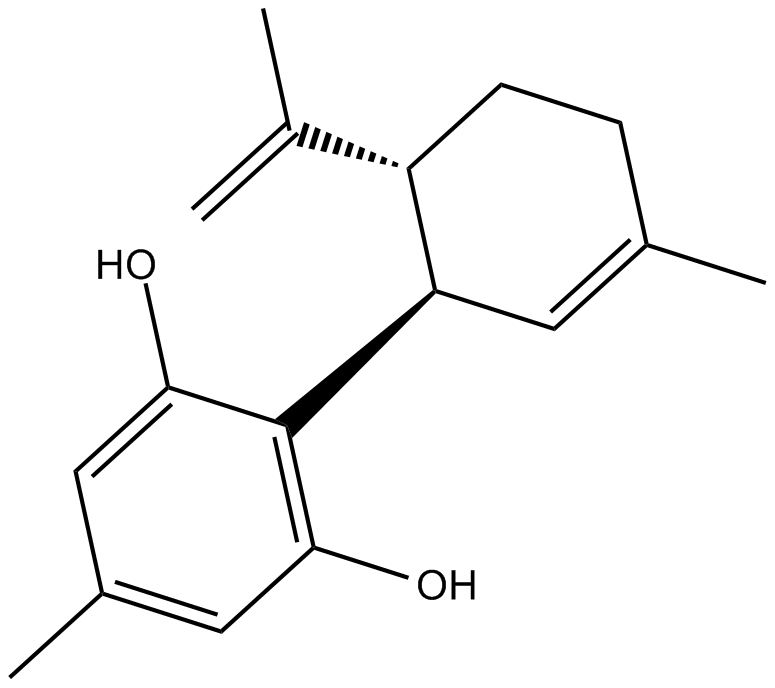O-1821 (Synonyms: Cannabidiorcin, Cannabidiorcol, Cannabidiorocol, CBD-C1, CBDO) |
| Catalog No.GC17699 |
cannabidiol analog with close structural similarity to O-1918 which is a selective antagonist of abnormal cannabidiol
Products are for research use only. Not for human use. We do not sell to patients.

Cas No.: 35482-50-9
Sample solution is provided at 25 µL, 10mM.
O-1821 is an cannabidiol analog with similar structure to O-1918, a selective antagonist of abnormal cannabidiol.
Abnormal cannabidiol, a synthetic regioisomer of cannabidiol, fails to elicit either central cannabinoid (CB1) or peripheral cannabinoid (CB2) receptors and is lack of psychotropic activity. It can induce endothelium-dependent vasodilation through a CB1/CB2/nitric oxide-independent mechanism.
In vitro: O-1821 is a cannabidiol analog with similar structure to O-1918, which was identified as a selective antagonist of abnormal cannabidiol at the non-central cannabinoid (CB1)/peripheral cannabinoid (CB2) receptors endothelial receptor. It was found that O-1918 could not bind to CB1 or CB2 receptors and thus could not cause vasorelaxation at concentrations up to 30 μM, but it could cause concentration-dependent inhibition of the vasorelaxant effects of abn-cbd and anandamide. Moreover, in human umbilical vein endothelial cells, abn-cbd was able to induce phosphorylation of p42/44 mitogenactivated protein kinase and protein kinase B/Akt, which could be inhibited by O-1918 or by phosphatidylinositol 3 (PI3) kinase inhibitors [1].
In vivo: O-1918 was found to be able to inhibit the hypotensive effect of abn-cbd dose-dependently but not the hypotensive effect of the CB1 receptor agonist (-)-11-OH-Δ9-tetrahydrocannabinol dimethylheptyl in anesthetized mice [1].
Clinical trial: So far, no clinical study has been conducted.
Reference:
[1] Offertáler, L. ,Mo, F.M.,Bátkai, S., et al. Selective ligands and cellular effectors of a G protein-coupled endothelial cannabinoid receptor. Molecular Pharmacology 63(3), 699-705 (2003).
Average Rating: 5 (Based on Reviews and 29 reference(s) in Google Scholar.)
GLPBIO products are for RESEARCH USE ONLY. Please make sure your review or question is research based.
Required fields are marked with *




















